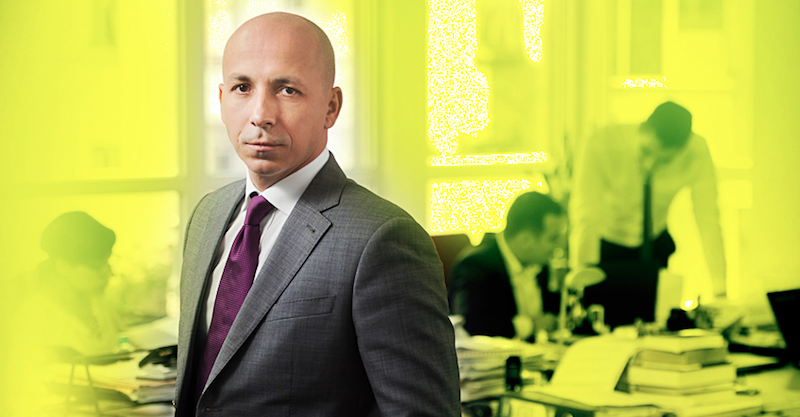So, you’ve had a great idea and you acted upon it. You’ve set up your company, put up the right team, got your products or services on the market, and it’s actually working!
And soon enough, if all goes well, some people will want a piece of your action. Well, you’ll definitely want a piece of their money too!
Sophisticated investors will know they want to invest from the day you pitch them. But their boards and their procedures usually want that decision to be a bit more substantiated.
And that’s when you have to clean the house, open your windows, doors and closets and let the prying eyes of the investor’s team of consultants in: it’s not spring cleaning, it’s due diligence time!
“If you’re looking for a black or white answer in doing diligence, it’ll be a fail” Matt Murphy, Managing Director @ Menlo Ventures [source]
They’ll usually look at your business from several different angles: market and competition, technology, management, business plan and strategy, financials, legal.
Generally, startups are able to handle the first four easily by themselves. It’s usually the remaining two where things may turn sour.
“While on the financials my only advice is ‘make sure you have a good accountant’, on the legal side there are lots of other things that matter” Radu Claudiu Ionescu (photo), Managing Partner @ Ionescu and Sava
A law-school and business school graduate, Radu specializes in M&A, competition, banking, finance and tax law. He coordinates the corporate and commercial advisory practice at Ionescu and Sava law firm.
Here are his keypoints when it comes to due diligence in digital and tech startups:
- Corporate records
This one should be a no-brainer. In our experience, it’s not. Make sure you keep your company registration documents, any changes you’ve made to the company structure, or any agreement that may exist between shareholders in good order.
- IP matters
In the digital/tech environment, IP rights are most of the times the main assets of the company – it’s what the investors will buy into. It’s generally the area of law where founders will think they have the most expertise.
But that’s not always the case. Patents, software and trademarks or trade names will be subject to different protection regimes across various jurisdictions – make sure your coverage is congruent to your international aspirations.
Sometimes IP needs protection even from within:
- Is the IP created by the members of your team owned by the company?
- If you use third party developers or outsource some your work, are you covered?
And finally, it’s not just your IP that matters – it’s also others’! Do you have the proper licenses in place for third party software or patents you use? Are there any limitations? If you use open source, is the proprietary product created by your company based on that open source software in line with the open source license?
- Agreements with suppliers, subcontractors, clients
Here, the first question is: do they even exist in writing (yes, electronic documents are considered to be in writing)? And when they do, key elements to consider are:
- How long are they concluded for;
- Can your company terminate them at will? Can the other party terminate them as a result of a change in your company’s structure?
- IP clauses – we’ve covered this above;
- Have you concluded agreements with related-parties (family, other companies you control) and if so are they at market price?
- Labor and/or outsourcing agreements; key personnel and incentive policy
Sometimes, as discussed above, IP is what defines the firm. But most (if not all) of the times, the team that created the IP or helped the company grow is just as important.
The investor will want to make sure they have enough motivation to stay onboard. And when they don’t stay onboard, it’s key to make sure they’re bound to confidentiality and, if you can afford it, under non-competition obligations.
- Assets
Sometimes this will be immaterial (a bunch of computers, a set of desks and chairs and that’s pretty much it). But sometimes, particularly for startups involved in hardware or technology manufacturing, they may be an essential part of the business.
Make sure your right to use them (whether they’re owned, rented or loaned by a friend of a friend) is well documented and that all authorizations, licenses and permits in respect to these assets (if required) are in force and validly held by the company.
- Financial and tax
It will be the financial and tax consultants’ job to look at this. But lawyers will have a peek too.
Among other things, they’ll want to know if you have taken loans, or if you have put in place other types of banking facilities, if you have any other debts and in what conditions, if your company offered any guarantees for any debts it may have (or, as we’ve seen in so many cases, for any debts your other companies may have).
- Compliance and security
Depending on where you operate, compliance may mean a lot of things.
It may relate to personal data protection of your customers, it may have to do with special authorizations you may require for a particular activity (even in other jurisdiction than where your company is based, if you operate online), or simply making sure that the building where your office is located has proper fire permits.
And you should be an expert in security, so I won’t go on about that.
- Litigations
It’s a young business. It’d better not be involved in any litigation already. But if it is, make sure there are no significant risks related to the core assets of the company (be it IP, fixed assets or personnel).
“Due diligence is the responsibility of investors. If they don’t perform their due diligence, and they’re simply relying on the credibility or the pedigree of the management team, they risk investing in products or technology that is ultimately proven unsound” [TechCrunch]
About Ionescu and Sava
- The law firm is a member of ABL (Alliance of Business Lawyers), a dynamic global association of leading business law firmswhich links lawyers in Europe, North America and across the world
- Awarded the “Law firm of the Year in 2010” Award at the Insolvency and Restructuring Category during the first AvocatNet.ro annual gala
- Triple Podium at the Avocatnet.Ro Gala Awards of 2012
- Awarded in 2013 “Competition Law – Firm of the Year – Romania”, offered by the prestigious British magazine Acquisition International.










